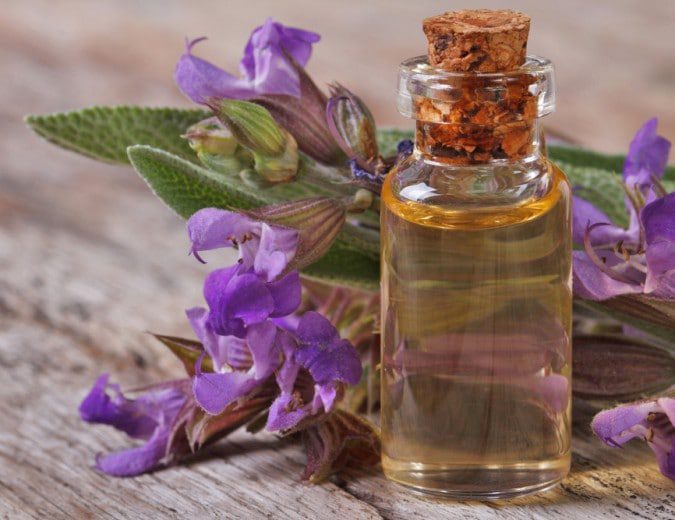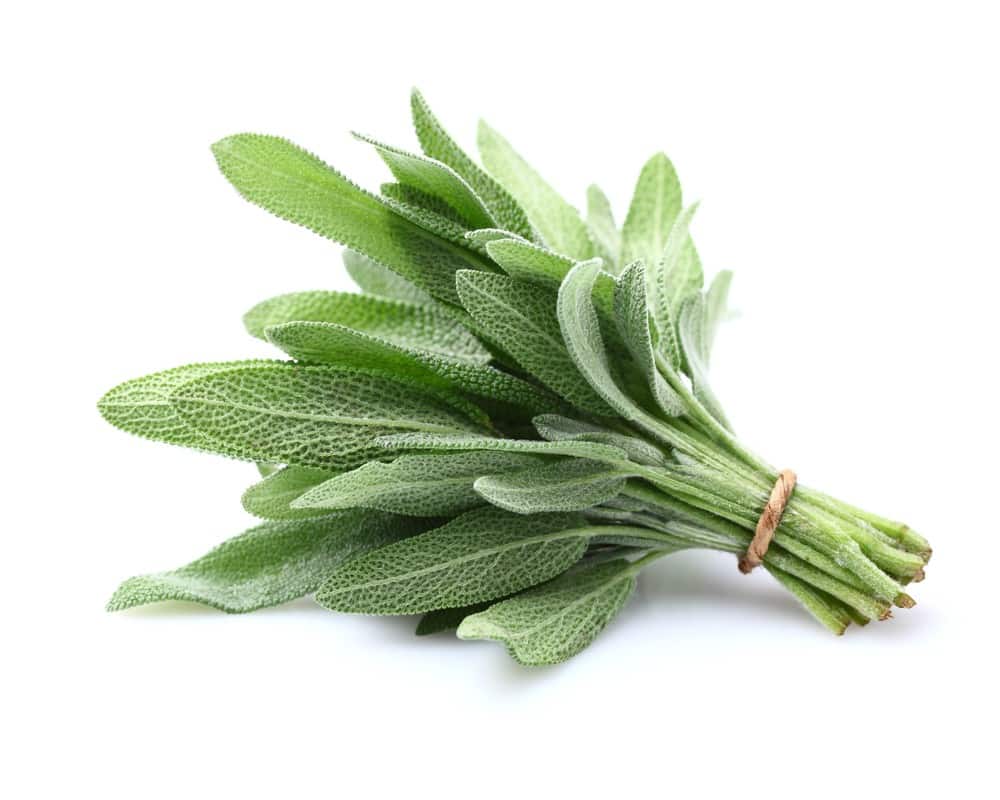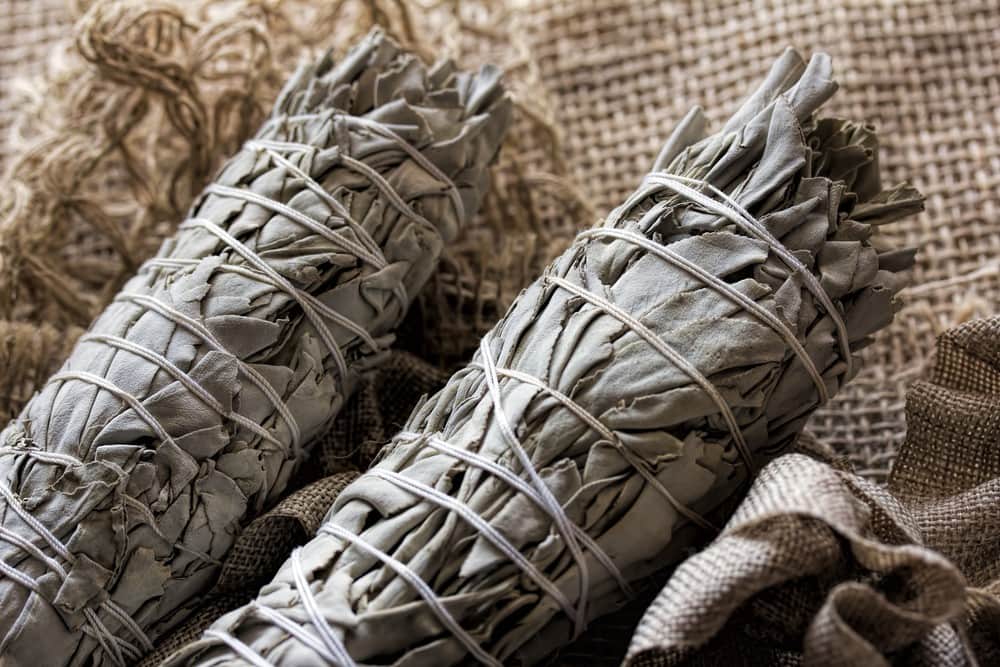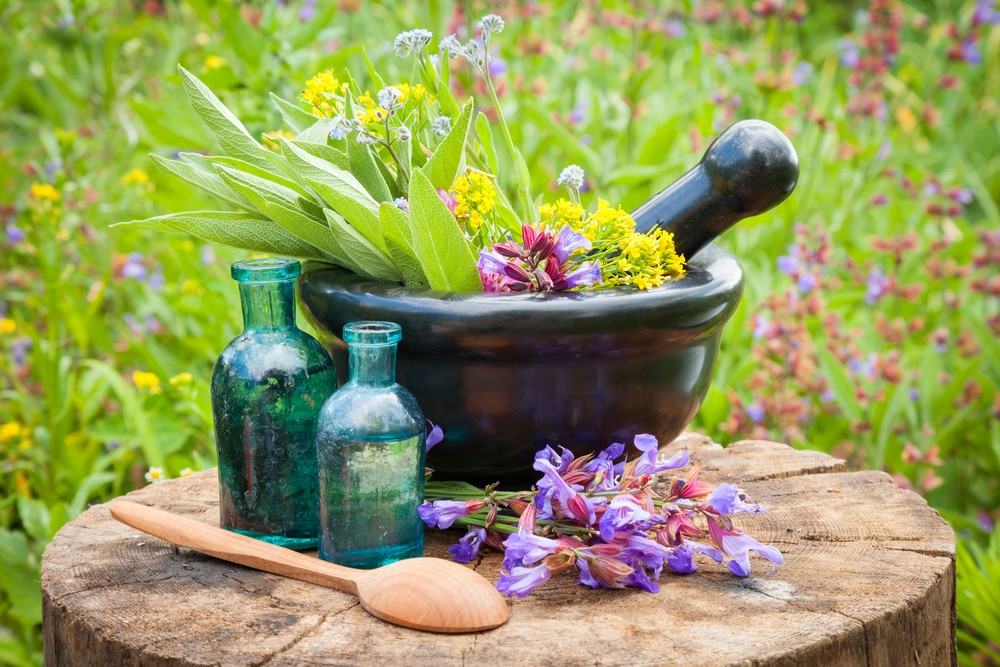There’s an old saying, “Why should a man die while sage grows in his garden?” Sage won’t make anyone immortal, but its anti-viral, anti-microbial and drying effects make it essential for alleviating the mucus and phlegm that come with colder weather.
As a culinary herb, it’s safe and easy to chop into soup, but gentleness isn’t weakness. Sage (Salvia officinalis) is helpful for conditions as diverse as skin problems, Alzheimer’s disease, cancer, and depression.
The dried herb, available in any grocery store, can be made into a tea in a pinch, and the essential oil, the concentrated essence of sage, can help lift mood and clear anxiety.
Like any powerful medicine, it’s vital to know what it can do and to use caution in some instances. Sage is not toxic, but affects that are beneficial in one instance — drying up excessive sweating, for example — can be detrimental in another, such as drying up breast milk in a nursing mother.
Sage Principles For Cold And Flu
Sage is drying and slightly heating, making it perfect for winter coldsthat are characterized by lots of phlegm or mucus, but not necessarily a fever, said Viji Natarajan, a former pharmaceutical chemist turned Ayurvedic specialist.
Ayurveda is one of humanity’s oldest medical systems, which sees a connection between the outer world and the inner experience; Ayurvedic practitioners can describe anything according to its elemental qualities, and “marry” the qualities of a medical condition to a medicine that would balance out the disease.
The flavor, action, and essence of an herb point to its use, Natarajan said. “Sage is understood to have astringent qualities with a pungent and bitter flavor, and it has drying and slightly heating effects.”
However, she cautions that sage wouldn’t be best for people who are very weak with dry skin or dry coughs, or people with high fevers. Sage is good to dry up excessive moisture, but may exacerbate high fevers and dryness.
However, research does show that sage is anti-microbial and anti-viral, and reduces swelling in swollen lymph nodes, making it a perfect and gentle remedy for colds with lots of phlegm.
“Sage is available as an herb, or as an essential oil, lipids extracted from the herb. Essential oils are quite potent and strong,” said Natarajan. “Herbs are much safer for oral ingestion. If someone was just looking on the internet and wanted to try sage, I’d recommend using the herb, rather than the oil.”
For another way to dry up mucus with sage, herbalist Maia Toll gently heats one cup of honey or agave syrup to make it runny, and then adds just one or two drops of therapeutic-grade essential oil. She puts some of the infused honey in tea.
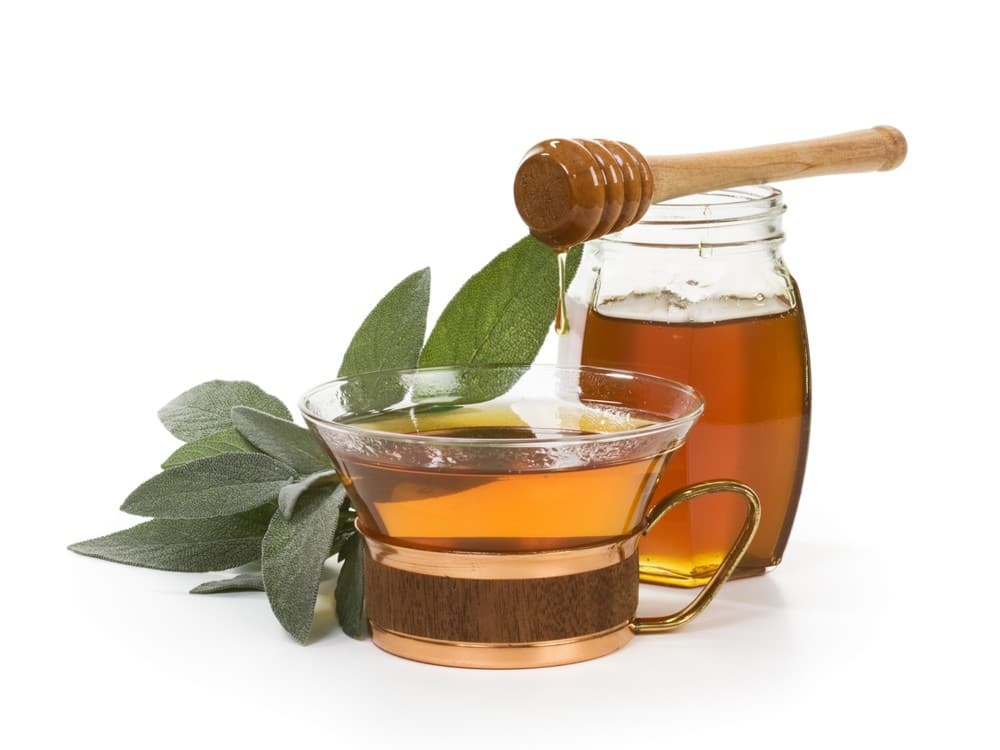
Balancing Mood, Lifting Depression, And Enhancing Memory
In Ayurveda, some herbs are known to have special qualities, and Natarajan said sage has a unique effect on nerves.
“The easiest way to use sage is to clear fluids, and to clear emotional stuckness,” she said. “It calms and clears the mind — excessive thoughts, fixations, desires and passions. It helps us move forward.”
She recommends adding a few drops of sage oil into a bowl of hot water and inhaling its diffused aroma. “Sometimes, when someone has a cold with heaviness in the head, it can affect the mood and the nervous system. When you diffuse the essential oil, it can clear your nasal passages, and also clear your mind,” she said.
“People use sage to clear energy in rooms — they burn the dried sage leaves in a new house, for example,” she said. “Not being able to do that, diffusing the essential oil has the same effect.”
In fact, studies have validated the traditional use of sage for depression, memory, and mood.
According to a research survey in the Journal of Traditional and Complementary Medicine, “Studies suggest that Salvia species, in addition to treating minor common illnesses, might potentially provide novel natural treatments for the relief or cure of many serious and life-threatening diseases such as depression [and] dementia.”
A number of medical studies showed that the essential oil’s aroma boosts mood, perhaps offering “long term protection in the pathogenesis of dementia,” the article said. “Also, the mood-enhancing properties of the herb may have applications in the treatment of advanced dementia.”
One study showed that sage “improves the memory and cognition, and with increasing dosage, the mood gets elevated as well as alertness, calmness, and contentedness,” the authors wrote. A sage extract helped manage mild to moderate Alzheimer’s disease, and the essential oil “has been reported to improve immediate word recall.”
And despite years of use, there were no reports of negative side effects in the literature.
Drying Excessive Moisture
When registered nurse Christie McLaughlin had her first child, she got mastitis, for which sage is great remedy.
Going along with sage’s drying properties, McLaughlin recommends using sage to dry the mammary glands. “Take brewed sage tea bags and place the directly on the breasts,” she said. “I think they’re better than pharmaceuticals.”
Because it dries breast milk production, sage shouldn’t be used by nursing mothers, or pregnant women generally, except in very late-stage pregnancy because it helps draw the baby downward, gently helping induce labor.
Sage’s drying effects work in the same way for other problems involving excessive moisture. It’s been used for centuries to treat wounds, ulcers, and bleeding. It can also balance out excessive seminal fluid or sweating, McLaughlin said.
“Sage is anti-inflammatory,” she said. “Thus, it reduces pus, snot, slime, and mucus that come with inflammation.”
Men can use it for excessive seminal fluid, and women for unusually heavy periods. “I’d recommend it for someone who’s having an unusually heavy flow — a one-off heavy flow that they don’t usually have,” she said. “It’s not as useful if a woman regularly has a very heavy flow — you’d need something more powerful to reverse that kind of condition.”
She also recommends sage essential oil for cosmetics.
Sage For Aging And Beauty
McLaughlin recommends sage oil for skin care. “It reduces wrinkles, scarring and angry stretch marks,” she said.
But she emphasized that sage essential oil should never be used neat. Always dilute the essential oil in a carrier oil, such as olive oil. “It’s best with something that’s solid at room temperature, such as coconut oil or shea butter,” she said.
Simply put a jar of coconut oil or shea butter in a pot of just-boiled water to melt it and add a few drops of essential oil, or melt the oil or butter gently over a double boiler to avoid burning it.
Sage essential oil can be added to shampoo to treat dandruff or oily hair, too, she said.
Naturopathic doctor Jennifer Burns also recommends sage for acne, thanks to its anti-microbial and anti-inflammatory properties. She also recommends sage for decreasing hot flashes by helping the body use estrogens. “It has antioxidant properties which can help in the decrease of free radical damage, which can reduce inflammation,” she said.
Preventing And Treating Cancer
Sage’s antioxidant properties make it a promising herb for cancer prevention and treatment. Being a gentle culinary herb, nearly anyone can use it in food to take advantage of its antioxidant properties, while its anti-viral and mood-enhancing properties make it promising for soothing late-stage cancer patients.
The Journal of Traditional and Complementary Medicine study noted a compound isolated from sage extract “showed a high antioxidant activity and is a very significant scavenger of free radicals.”
Sage extract was found to inhibit angiogenesis, the development of new blood vessels in tumors. Because of this, the study authors said sage may be a good plant to investigate for new cancer drugs. Sage tea also prevented colon cancer in tests on rats.
Often cancer patients have sensitivities, and while the smell of the essential oil may be helpful in alleviating fog, boosting mood, clearing nasal passages, and relieving aching heads, it may be too intense, in which case, nurse McLaughlin recommends rubbing the feet with a carrier oil that’s infused with a few drops of sage essential oil.
Use Caution With Essential Oils
“I had a friend call me once saying, ‘I just bought tea tree oil at Dollar General for one dollar!’” said McLaughlin. “That doesn’t sound very good. Don’t buy any medication, especially an essential oil, from Dollar General.”
Essential oils are the pure extracts of an herb, and buying therapeutic quality is essential; McLaughlin recommends the Plant Therapy brand because of its reliably high quality.
“If you see discount essential oil, it may contain additives, sometimes petrochemicals. Frankly, brands like that aren’t doing anything wrong — the industry is not very tightly regulated — but you want to make sure the oil is therapeutic grade. There’s a difference between therapeutic grade and an oil that’s made for crafts such as candle making,” she said.
“Essential oils are volatile. Some need to be refrigerated, some left in the dark. They have a more narrow window to keep fresh and at therapeutic level,” she said.
Also, purchase high-quality supplement capsules if intending to ingest the oil, rather than making capsules.
“Essential oils are so potent, you can tax your liver or burn your stomach or esophagus,” said McLaughlin. “There are plenty of options to purchase a sage oil capsule with a nice coating, or a sage tea.”
Sage is easy to grow from seed, too. The plant tolerates plenty of neglect as long as it has lots of sunshine, and it’s hardy in most regions of the United States. The flowers attract pollinators during the summer and the shrub’s interesting texture is beautiful in a garden.
Sage is a humble culinary herb available in any grocery store, and its anti-viral, anti-microbial, anti-aging, drying, toning, and mood-enhancing properties make it a perfect addition to the spice and medicine cabinets.
